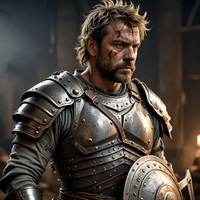I mean, I think “very” in the title is a stretch. It’s Pathfinder 2e’s feat-centric system but without multiclass restrictions. Which is fine, but Wildsea did it better and doesn’t encumber you with levels (though I have problems with its advancement system).
Very much a “Wow, Brandon Sanderson. I guess I hadn’t ever thought about leveling in that specific way before.” moment. Nothing really revolutionary unless you locked yourself in the D&D dungeon already.
The way they describe it, it’s still pretty similar to D&D. Level 1 to 20, gain a feature every level, features gained in order, multiclass to get more control over your features… Yeah, that’s D&D.
It’s hard to say based on this article because it’s a little vague, but the sense I get is that it’s more like Pathfinder with feat trees, except that every ability comes from a feat (no class abilities) and you get a class feat every level. It sounds noticeably different from D&D, while still very much being a class-based system unlike games like M&M or CoC which use a point-based or skill-based system.
Saying it’s not like D&D because it’s more like Pathfinder is not a great argument, considering Pathfinder is essentially a split branch of D&D. And since the headline lists both D&D AND Pathfinder, it’s still wrong.
Why are you coming across as “trying to be right on the Internet” rather than “engaging with what was said”?
I am engaging with what was said, I just don’t agree with what was said.
Sure, but I’m not just saying it’s “like Pathfinder”, I’m saying (again, based solely on the vague limited wording in this article) it sounds like a very specific variation of Pathfinder that is not how Pathfinder itself works; it’s just easier to describe in terms of Pathfinder lingo.
The fact that it says it “handles classes” instantly tells us it’s a classy system, so on that basis alone it’s going to have a lot of resemblance to classy systems like D&D and Pathfinder. Saying that it doesn’t handle classes very differently is a bit like saying xiangqi doesn’t handle its pieces very different from chess because they both uses pieces that move around a board capturing other pieces. It might be technically accurate in some sense, but it’s not a very helpful comment.
Aren’t D&D like class the exception rather than the norm ?





